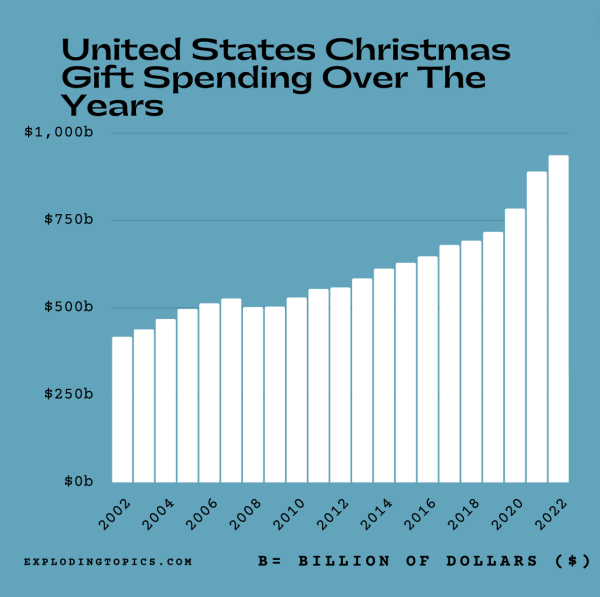The true essence of the holidays is gradually being overshadowed by rampant commercialization. From Christmas to Saint Patrick’s Day, the spirit behind these celebrations is getting lost amidst the relentless pursuit of profit by large corporations.
This trend has not recently developed, tracing back to the 1840s when marketers began to view Christmas as a lucrative opportunity for promoting sales. Over the years, the commercialization of this festive season has only intensified, with Santa becoming synonymous with advertisements in major cities like New York City and Boston, and the emergence of in-store Santas first appearing in Macy’s in 1862.
Amazon said it expects sales to significantly increase in the last three months of the year, which includes the online shopping spree that comes with the Christmas holiday period. Amazon expects between 160 million dollars and 167 million dollars of increased profit this year.
The detrimental impact of this commercialization extends beyond profit-making. Concerns have been raised by religious leaders and global communities about the erosion of values, the dilution of religious observance, and the diminishing emphasis on the genuine significance and spirit of these holidays.
“The High Holidays are about renewal, about trying to build a better world,” said Rabbi Noah Farkas, President of the Jewish Federation of Greater Los Angeles.
The rise of corporate power has been overly concerning. Not only have popular and well-funded corporations faced allegations of exploiting workers and manipulating the political landscape, but they have also been criticized for producing substandard and unsafe products. The fear of corporate entities manipulating prices and influencing government decisions has instilled a sense of apprehension in many.
In this commercial frenzy, the culture of gift-giving has become a superficial practice that prioritizes materialism over emotional connection. In a capitalist society, material wealth has come to symbolize success, perpetuating a cycle that worsens the effects of consumerism.
From 2002 to 2022, there was a 95.2% increase in the amount of money spent on Christmas gifts in the United States, according to ExplodingTopics.com.
The implications of consumerism are far-reaching and alarming, with the excessive depletion of natural resources and the severe pollution of the planet. The current trajectory of the consumer society is clearly unsustainable, as we are exploiting Earth’s resources at a rate exceeding 70 percent of its capacity.
For example, during Thanksgiving, commercialization can be seen in the extensive promotion and sale of Thanksgiving themed products, such as prepackaged meals, holiday themed decorations and exclusive deals on various goods.
However, it is crucial to acknowledge that the essence of these holidays transcends their commercial trappings. While their origins may lie in religious traditions, individuals can cherish these occasions without succumbing to excessive spending regardless of religious affiliation. Fostering a sense of togetherness within families and communities remains the true essence of these festivities.








